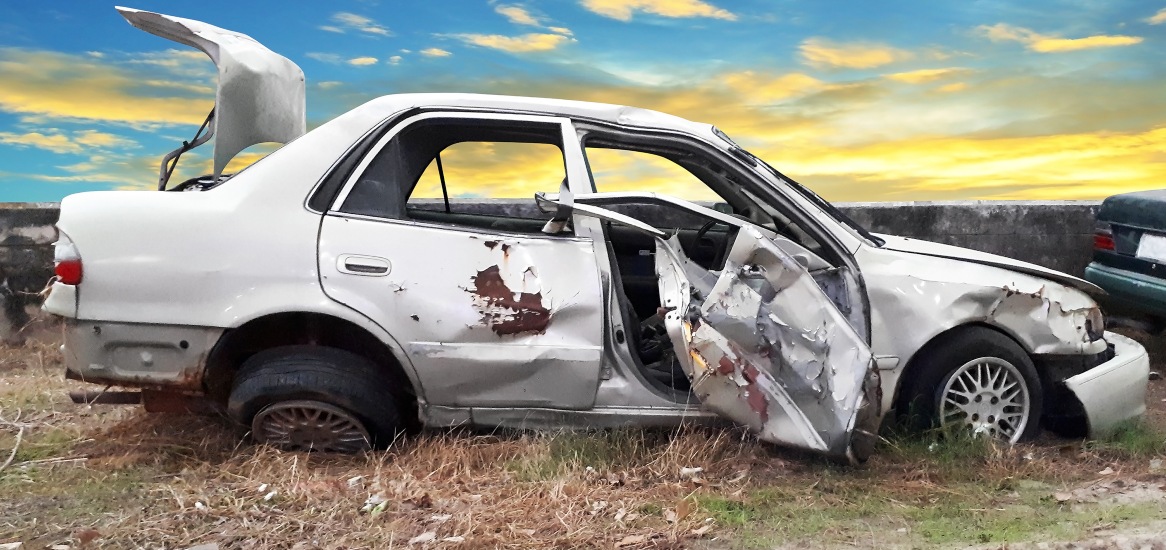The Economic and Ecological Benefits of Reusing Junk Automobiles
Recycling junk vehicles provides various economic and ecological advantages that expand well beyond waste reduction. These advantages highlight the multifaceted value of reusing scrap cars, yet there are even more facets to take into consideration when assessing its complete influence.
Lowering Land Fill Waste
Decreasing landfill waste with the recycling of scrap cars plays a pivotal role in ecological conservation. When automobiles reach completion of their life process, effective reusing procedures can substantially decrease the quantity of waste that finishes up in garbage dumps. Scrap vehicles, otherwise correctly recycled, add to the expanding issue of garbage dump overcapacity, worsening environmental destruction and possibly contaminating soil and groundwater with dangerous compounds such as oil, gas, and heavy steels.

In addition, the recycling process minimizes the adverse impacts of auto waste on biodiversity. Landfills are well-known for disrupting neighborhood ecosystems, and decreasing the influx of scrap vehicles helps maintain all-natural habitats. Inevitably, recycling scrap cars and trucks is a critical technique that promotes sustainable waste monitoring, aligning with broader ecological goals.
Conserving Natural Resources
Along with mitigating landfill overcapacity, reusing scrap cars and trucks plays a significant duty in saving natural resources. The auto market is greatly reliant on various metals, plastics, and various other materials that require extensive mining and handling. By recycling junk automobiles, we substantially lower the need for raw products, therefore curbing the ecological destruction connected with mining activities. For example, reusing steel from old cars minimizes the requirement for iron ore removal, which in turn reduces energy usage and greenhouse gas exhausts.
Furthermore, the process of recycling auto components such as lead, aluminum, and copper is far less energy-intensive than producing these products from virgin sources. This energy savings converts straight right into minimized fossil gas intake and reduced carbon impacts (cash for cars denver). Additionally, by reclaiming and repurposing products, we prolong the lifecycle of non-renewable sources, guaranteeing they remain readily available for future usage
Additionally, reusing vehicle fluids like oil, antifreeze, and transmission liquid stops harmful substances from contaminating dirt and water sources. Through methodical recycling initiatives, these fluids can be cleansed and recycled, promoting a circular economy and additional decreasing the strain on natural deposits. Thus, reusing junk cars provides a complex strategy to preserving our earth's invaluable natural possessions.
Producing Job Opportunities
The recycling of junk cars and trucks not just profits the atmosphere but also promotes economic development by developing job opportunities. This growing market provides a wide selection of work prospects, ranging from the first collection and transportation of old lorries to the elaborate procedures of taking down, sorting, and repurposing the different elements.

The proliferation of reusing plants better magnifies the task market, necessitating duties such as designers, machine operators, and quality assurance experts to guarantee and manage the innovative equipment compliance with environmental regulations. Also administrative positions, such as sales, advertising, and customer support, see a surge as the sector broadens.
Lowering Manufacturing Prices
By including recycled materials from scrap autos, manufacturers can substantially decrease manufacturing expenses. The utilization of recycled steel, aluminum, and various other important metals lowers the demand for resources removal, which is both energy-intensive and costly. This not just saves natural deposits however likewise translates into considerable cost savings for automobile producers. The power called for to refine recycled products is significantly much less than that required to create new products from square one. This decrease in energy consumption straight associates with decreased production expenditures.
Furthermore, the reusing process aids simplify the supply chain by supplying a steady increase of products that are easily available and typically less expensive than freshly mined sources. These cost effectiveness are particularly critical in a very competitive sector like automobile production, where margins can be razor-thin. Additionally, the recycling of scrap autos helps alleviate the unpredictable pricing of raw products, enabling suppliers to much better projection and control their manufacturing budget plans.
Giving Budget-friendly Vehicle Components
When junk cars and trucks are reused, the availability of cost effective automobile parts considerably increases, benefiting both customers and service center. Recycled car parts are usually cost a fraction of the cost of brand-new components, giving a cost-effective option for vehicle owners and auto mechanics. This price can be important for people that might not have the monetary means to buy new parts, enabling them to maintain their lorries in secure and functional condition.
Repair shops likewise gain from this enhanced availability of budget friendly parts. By sourcing recycled elements, these services can minimize their functional costs, which can be passed on to clients through lower solution charges. This, subsequently, can lead to higher consumer fulfillment and commitment, as customers appreciate the price savings without endangering on quality.
Moreover, the high quality of recycled parts has actually boosted significantly throughout the years, many thanks to advancements in reusing processes and top quality control measures. Lots of recycled parts undertake strenuous screening to guarantee they meet industry criteria, offering integrity comparable to repairs - sell car to junkyard. By providing a economically viable and top quality alternative, the recycling of scrap autos plays a pivotal function in supporting both the automotive repair work industry and the wider customer market
Verdict
Recycling scrap vehicles offers significant economic and environmental advantages by dramatically lowering garbage dump waste and conserving natural deposits. This technique reduces making costs by redeeming up to 90% of car elements, hence reducing energy consumption and greenhouse gas emissions. Additionally, it produces job opportunity across numerous markets and supplies inexpensive vehicle components, boosting the vehicle repair sector. On the whole, the recycling of junk automobiles supports both financial development and sustainability purposes.
Recycling scrap cars provides many financial and environmental benefits that expand well beyond waste decrease. Scrap vehicles, if not properly reused, contribute to the growing trouble of garbage dump overcapacity, aggravating ecological deterioration and potentially infecting dirt and groundwater with harmful compounds such as oil, gas, and hefty metals.
By reusing scrap cars and trucks, we significantly decrease the need for raw products, therefore curbing the environmental degradation associated with mining tasks.When scrap automobiles are recycled, the availability of economical auto components significantly raises, profiting both customers and fixing shops.Recycling scrap vehicles presents considerable economic and environmental advantages by dramatically decreasing landfill waste and conserving natural sources.